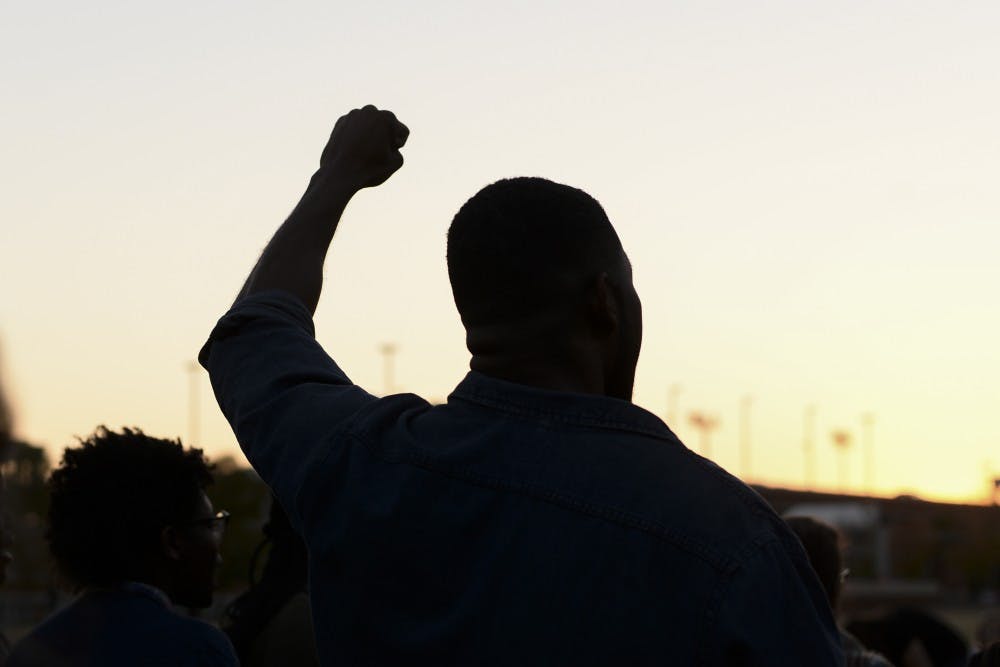In a recent report, the Princeton Review ranked Auburn students as being the happiest in the country.
Understandably, the University chose to widely publicize this ranking, and many news outlets ran articles saying Auburn is the happiest Village on the Plains.
But the happiness ranking was not the only aspect of the Princeton Review’s report. They also ranked Auburn students as:
No. 9 worst in race/class interaction
No. 5 most unfriendly to members of the LGBTQ community
So, while Auburn may have the “happiest students,” it also has some of the unhappiest.
The basic demographics of Auburn may lead the majority of its students to be happy, but in no way should that count as a blanket statement for everyone who calls this University home.
To start, the vast majority — 75.9% — of Auburn students are white. Most of them come from middle to upper-class backgrounds, and according to the Princeton Review, most of them rarely interact with anyone of a different race or income level while at Auburn. Not only do most Auburn students come from a privileged background, few of them talk to people who aren’t from a privileged background.
Unsurprisingly, this large group of middle to upper-class white people from the American South who have very little interaction with victims of systemic oppression also tend to be quite Christian and politically conservative.
There is nothing wrong with being conservative or Christian — Auburn ranked on both lists in the Princeton Review — but when you have a student population where most of the people look the same and grew up in similar circumstances, no one should be surprised when that group thinks and believes similar things. At the same time, no one should be surprised when the people who disagree with the majority feel silenced or don’t show up in surveys.
This is important because while most Auburn students may be white, straight, conservative and religious — a large minority are not.
Nearly 8,000 people of color call Auburn University home, and another unknown number of students belong to the LGBTQ community.
Many of these sizable minorities have organizations like the Black Student Union or the International Student Organization which advocate for their rights, but the mere presence of these types of organizations can never fully compensate for the massive disparity in enrollment numbers. At current levels they will never show up in university-wide surveys.
But that doesn’t mean their happiness can be ignored. People of color and members of the LGBTQ community should be able to feel safe and happy at Auburn, but the University’s current climate of hegemony and homophobia doesn’t allow for that.
In fact, the school’s current administration and student body have done very little to encourage any kind of long-term solution to these issues. And they’ve had plenty of opportunities to try.
When Auburn played Alabama State University, a historically black institution, in football last year, two Greek fraternities hung racist banners from their balconies.
Three years ago, a self-proclaimed neo-Nazi spoke on campus.
Two years ago, the Honors College faced backlash after inviting the president of the White Student Union, an organization the Southern Poverty Law Center has designated as a hate group, to speak at an event.
Last year someone rushed into an LGBTQ-inclusive coffee shop and shouted Nazi propaganda.
But instead of real change, the school’s response to every one of these incidents was the same: some vague statement about how these are not our values.
But aren’t they?
None of these events are the sole responsibility of any single organization, student or administrator. Rather, they are all products of a community which has refused to take a meaningful stance against the forms of white supremacy that have shown up on and around campus in the last few years. It’s obvious that some people in this town and University feel they can safely profess hateful and violent ideas without any real repercussions.
All of that has to be taken into account when looking at this Princeton Review ranking. Even if the majority of Auburn students say they are happy, everyone is not in the majority.
Looking forward, Auburn’s administrators, faculty and students need to ensure that this happiness ranking doesn’t get in the way of addressing the real issues that are present on campus.
Blindly celebrating our happiness ranking while some students endure undue harassment in silence is shameful.
The difficult part is that these issues can’t be solved by any single part of Auburn’s administration or student body. The fact that some students feel like Auburn is a place where they can openly be racist isn’t going to be solved by the Office of Inclusion and Diversity. It’s not going to be solved by the BSU or the ISO or The Plainsman.
The University as a whole has to understand the entire reality of their students’ happiness.
Rankings like the one from the Princeton Review can be beneficial to a school, but only if all of its findings are given the same weight.
It’s great that so many students are happy at Auburn, but that’s not a reason to ignore the ones who aren’t. There are students here who feel threatened, harassed, ignored and silenced.
Auburn has to ensure that all of its voices are heard. This can’t be solved by the administration, the student body or the Princeton Review.
It has to be a collective effort because it’s not about changing a policy — it’s about changing a culture.
Do you like this story? The Plainsman doesn't accept money from tuition or student fees, and we don't charge a subscription fee. But you can donate to support The Plainsman.





